|
Books Should Be Free Loyal Books Free Public Domain Audiobooks & eBook Downloads |
|
|
Books Should Be Free Loyal Books Free Public Domain Audiobooks & eBook Downloads |
|
Psychology Books |
|---|
Book type:
Sort by:
View by:
|
By: A Highland Seer | |
|---|---|
 Tea-Cup Reading and Fortune-Telling by Tea Leaves
Tea-Cup Reading and Fortune-Telling by Tea Leaves
Reading the Cup is essentially a domestic form of Fortune-telling to be practiced at home, and with success by anyone who will take the trouble to master the simple rules laid down in these pages: and it is in the hope that it will provide a basis for much innocent and inexpensive amusement and recreation round the tea-table at home, as well as for a more serious study of an interesting subject, that this little guide-book to the science is confidently offered to the public. | |
By: Harry Houdini (1874-1926) | |
|---|---|
 Magician Among the Spirits
Magician Among the Spirits
Houdini, an escape artist and illusionist, became interested later in his life in debunking spiritualists, disbelieving anyone who claimed to have supernatural powers. This was during an era where paranormal phenomena, especially seances, were extremely popular. Although skeptical of their claims, he longed to find a credible source to communicate with family members he had lost. This book chronicles his travels and the many people he spoke with and his observations of their 'powers' and along the way also reveals many of the tricks they employed to deceive their paying customers. - Summary by Phyllis Vincelli | |
By: Johann Gottlieb Fichte (1762-1814) | |
|---|---|
 Destination Of Man
Destination Of Man
Johanne Fichte published The Destination of Man in 1799. It was translated into English in 1846 by Jane Sinnett and then again in 1848 by William Smith. Fichte says his book is designed to "raise [the reader] from the sensuous world, to that which is above sense." Francis Bacon said, in The Advancement of Learning, "the two ways of contemplation are not unlike the two ways of action commonly spoken of by the ancients; the one plain and smooth in the beginning, and in the end impassable; the other rough and troublesome in the entrance, but after a while fair and even... | |
By: John Locke (1632-1704) | |
|---|---|
 Essay Concerning Human Understanding Book II
Essay Concerning Human Understanding Book II
John Locke wrote four essays on human understanding. Here are a few quotes from the book: "I see no reason to believe, that the soul thinks before the senses have furnished it with ideas to think on. The dreams of sleeping men are, as I take it, all made up of the waking man's ideas, though for the most part oddly put together. Can the soul think, and not the man, or a man think, and not be conscious of it? Suppose the soul of Castor separated, during his sleep, from his body, to think apart. Let us suppose too, that it chooses for its scene of thinking the body of another man, v... | |
By: Orison Swett Marden (1850-1924) | |
|---|---|
 Pushing to the Front
Pushing to the Front
Published in 1894, this is the first book by the renowned inspirational author, Dr. Orison Swett Marden. Pushing to the Front is the product of many years of hard work, and marks a turning point in the life of Dr. Marden. He rewrote it following an accidental fire that brought the five-thousand-plus page manuscript to flames. It went on to become the most popular personal-development book of its time, and is a timeless classic in its genre. Filled with stories of success, triumph and the surmounting of difficulties, it is especially well-targeted at the adolescent or young adult... | |
By: Various | |
|---|---|
 American Psychology, 1922-1947
American Psychology, 1922-1947
This is the second of what is intended to be three projects featuring journal articles which chart the development of psychology as an academic discipline in the United States during the twentieth century. This collection includes key texts in the development of behaviourism, neuropsychological testing, the psychology of race and humanist therapeutic psychology. Many thanks to staff at the American Psychological Association, Taylor and Francis and Phi Beta Kappa who have helped us to establish that these papers are public domain for those who live in the United States or countries that recognise the Rule of the Shorter Term. | |
By: A. Alpheus | |
|---|---|
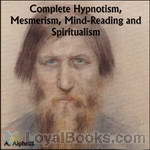 Complete Hypnotism, Mesmerism, Mind-Reading and Spiritualism
Complete Hypnotism, Mesmerism, Mind-Reading and Spiritualism
Written in 1903, just sixty years after the word ‘hypnotism’ was coined, this book explores the contemporary understanding of the nature, uses and dangers of the technique. Hypnotism has been practiced for many centuries, but it was in the mid-to-late nineteenth century that it became a particularly fashionable way to explore the human mind. Although understanding of the subject has evolved considerably over subsequent years, this book remains a fascinating insight into a technique once thought to be at the forefront of medical science. | |
By: A. Medium | |
|---|---|
 Revelations of a Spirit Medium
Revelations of a Spirit Medium
Written anonymously by "a working 'medium' for the past twenty years", this little book was an inspiration for a young Harry Houdini, and also rather hard to find until a facsimile edition was published in 1922, due to all the copies being bought and destroyed by spiritualists. According to the preface, "the most wonderful of the 'medium's' phenomena will be so thoroughly explained and so completely dissected that, after reading this book, you can perform the feats yourself". - Summary by Jordan | |
By: Adam Smith (1723-1790) | |
|---|---|
 The Theory of Moral Sentiments (First Edition)
The Theory of Moral Sentiments (First Edition)
“How selfish soever man may be supposed, there are evidently some principles in his nature, which interest him in the fortunes of others, and render their happiness necessary to him, though he derives nothing from it, except the pleasure of seeing it.” (from The Theory of Moral Sentiments) Adam Smith considered his first major book, The Theory of Moral Sentiments, his most important work. Indeed, the tome was a wild success upon its publication, selling out immediately. It has not lost popularity since... | |
By: Alfred Binet (1857-1911) | |
|---|---|
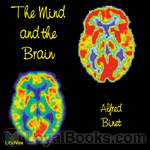 The Mind and the Brain
The Mind and the Brain
Today, almost every layperson understands the concept of intelligence tests and can glibly discuss IQ scores. In fact, these have become so common in the popular imagination that magazines, websites and pop quizzes offer to assess your intelligence at the drop of a hat! In this scenario, it's interesting to recall the very first person who proposed the concept of measurable intelligence. Alfred Binet was basically a clinical psychologist whose wide-ranging interests in learning difficulties faced by school children prompted him to undertake extensive studies in human cognition, psychology, learning and behavior... | |
By: Anonymous | |
|---|---|
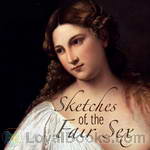 Sketches Of The Fair Sex
Sketches Of The Fair Sex
Sketches of the fair sex, in all parts of the world. To which are added rules for determining the precise figure, the degree of beauty, the habits, and the age of women, notwithstanding the aids and disguise of dress. It is our design to present a pleasing and interesting miscellany, which will serve to beguile the leisure hour, and will at the same time couple instruction with amusement. We have used but little method in the arrangement: Choosing rather to furnish the reader with a rich profusion... | |
By: Aristotle (384 BCE-322 BCE) | |
|---|---|
 Parva Naturalia
Parva Naturalia
Parva Naturalia [the "short treatises on nature" (a conventional Latin title first used by Giles of Rome)] is a collection of books by Aristotle, which discuss natural phenomena involving the body and the soul. The books are as follows:I - On Sensation and the SensibleII - On Memory and RecollectionIII - On Sleeping and WakingIV - On DreamsV - On Prophecy in SleepVI - On Longevity and Shortness of LifeVII - On Youth and Old Age, Life and Death VIII - On Respiration | |
By: Arnold Bennett (1867-1931) | |
|---|---|
 Mental Efficiency and Other Hints to Men and Women
Mental Efficiency and Other Hints to Men and Women
Mental Efficiency and Other Hints to Men and Women is one of the many self help books that Bennett wrote, the most famous of these being How to Live 24 Hours a Day. It is highly readable, amusing and offers wisdom in an extremely palatable form. Bennett's gift for analysis and his knowledge of philosophy and psychology make this book a valuable treasure trove of handy hints to improve our lives. Though it was first published in 1911, it remains as relevant, wise and useful as it did more than a hundred years ago... | |
 The Human Machine
The Human Machine
Bennett asks us to consider our brains as the most wonderful machine, a machine which is the only thing in this world that we can control. As he writes: "I am simply bent on calling your attention to a fact which has perhaps wholly or partially escaped you -- namely, that you are the most fascinating bit of machinery that ever was."As ever, his prose is honeyed, his thoughts inspired, and his advice as relevant today as when it was written. (Introduction by Ruth Golding) | |
By: Ayn Rand (1905-1982) | |
|---|---|
 Anthem
Anthem
The title 'Anthem' is derived as an anthem to sense of self and self-governing thoughts. Anthem is a story of Equality 7-2521 who is a young man living in some unspecified future time and place. In this future era freedom and individual rights have been eradicated. The starring character of the novel is an inquisitive street cleaner. He lives in a society where people have lost their knowledge of individualism, to the extreme that people do not know words like 'I' or 'mine'. All the people live and work for their livelihood in collective groups, along with the people with power, namely the 'Councils'... | |
By: Baron Paul Henri Thiry d'Holbach (1723-1789) | |
|---|---|
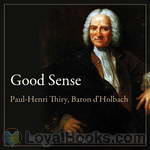 Good Sense
Good Sense
In 1770, Baron D'Holbach published his masterpiece, "Systeme de la Nature", which for a long time passed as the posthumous work of M. de Mirabaud. That text-book of "Atheistical Philosophy" caused a great sensation, and two years later, 1772, the Baron published this excellent abridgment of it, freed from arbitrary ideas; and by its clearness of expression, facility, and precision of style, rendered it most suitable for the average student. This text is based on an undated English translation of "Le Bon Sens" published c. 1900. The name of the translator was not stated. | |
By: Bertrand Russell (1872-1970) | |
|---|---|
 Analysis of Mind
Analysis of Mind
A neat work on philosophy of mind by the 20th century analytic philosopher Bertrand Russell. | |
By: Booker T. Washington (1856-1915) | |
|---|---|
 Putting the Most Into Life
Putting the Most Into Life
The chapters in this little book were originally part of a series of Sunday Evening Talks given by the Principal to the students of the Tuskegee Normal and Industrial Institute. They have been recast from the second to the third person, and many local allusions have been cut out. They are now sent out, in response to repeated requests, to a larger audience than that to which they were first spoken. - Summary by Booker T. Washington | |
By: Carl Gustav Jung (1875-1961) | |
|---|---|
 Studies in Word-Association
Studies in Word-Association
Following his Psychology of the Unconscious Processes, this book is a series of papers compiled under the direction of Dr. Carl Jung, also known as the founder of psychoanalysis. It records research related to the association method conducted on persons with and without psychological conditions. Jung's work on association among "normal" individuals formed the basis of psychological types. - Summary by Cao Yuqing | |
 Psychological Types: Or, the Psychology of Individuation
Psychological Types: Or, the Psychology of Individuation
Ever wondered if there is any "theoretical basis" for the well-known Myers–Briggs Type Indicator Personality Test? In this groundbreaking work of typology, Jung proposes three key dichotomies - extraversion/introversion, sensation/intuition, as well as thinking/feeling - as an attempt to reconcile the differing theories of Sigmund Freud and Alfred Adler. - Summary by Cao Yuqing | |
 Psychology of the Unconscious
Psychology of the Unconscious
Jung says in his subtitle that this work is a study of the transformations and symbolisms of the libido and a contribution to the history of the evolution of thought. | |
 Collected Papers on Analytical Psychology
Collected Papers on Analytical Psychology
A collection of classical writings of Swiss psychologist Carl G. Jung, an influential thinker and the founder of analytical psychology. Written at intervals over a span of fourteen years, these selected articles and pamphlets contain many fascinating ideas that have become widely accepted psychological concepts nowadays, but had just started to develop at the time when the book was written. For instance, this is where Dr. Jung's ideas of introversion and extroversion, a contribution of vital importance to psychology, appeared for the very first time. Other topics explored include the concept of the unconscious, the study of psychological types, and the psychology of dreams. | |
 Theory of Psychoanalysis
Theory of Psychoanalysis
Jung says the following in his introduction: "in these lectures I have attempted to reconcile my practical experiences in psychoanalysis with the existing theory, or rather, with the approaches to such a theory." He goes on to say, "Here is my attitude towards those principles which my honored teacher Sigmund Freud has evolved from the experience of many decades." Some topics considered in this light are infantile sexuality, the conception of the libido, the unconscious, the dream, repression, and the etiology of neuroses. | |
By: Cesare Lombroso (1835-1909) | |
|---|---|
 Crime, Its Causes and Remedies
Crime, Its Causes and Remedies
Published as the third volume in the Modern Criminal Science Series, Cesare Lombroso, renowned Italian criminologist, collected a wealth of information regarding the incidence, classification, and causes of crime. Crime calendars, the geography of crime, unusual events and circumstances leading to more frequent crime, political motivations and associations of criminal enterprise and an assessment of the real value and effectiveness of prisons and reform programs are all included in this three part volume. - Summary by Leon Harvey | |
 Man of Genius
Man of Genius
Famous criminologist, anthropologist, and psychiatrist, Dr Lombroso, investigated the memetic anecdotal belief that genius is associated with degenerative symptoms, or may even be a version of insanity, and presented his findings as a fascinating and controversial theory that the creative and imaginative celebrities throughout history have also displayed what he termed as "atavistic" symptoms, or defects resembling what is commonly seen in the unwell. Citations of evidence are drawn from a rich variety... | |
By: Charles B. Towns (1862-1947) | |
|---|---|
 Habits that Handicap
Habits that Handicap
Habits that Handicap is one of three novels about alcholoism and drug addiction written by Charles B. Towns. Towns was an expert on alcoholism and drug addiction who helped draft drug control legislation in the United States during the early 20th century. He also founded the Towns Hospital in New York City, which aimed at drying out the well-to-do patient. | |
By: Charles Godfrey Leland (1824-1903) (1824-1903) | |
|---|---|
 The Mystic Will
The Mystic Will
This book presents a method of developing and strengthening the faculties of the mind, through the awakened will, by a simple, scientific process possible to any person of ordinary intelligence | |
By: Charles Mackay (1814-1889) | |
|---|---|
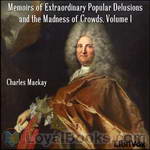 Memoirs of Extraordinary Popular Delusions and the Madness of Crowds
Memoirs of Extraordinary Popular Delusions and the Madness of Crowds
The book chronicles and vilifies its targets in three parts: “National Delusions”, “Peculiar Follies”, and “Philosophical Delusions”.The subjects of Mackay’s debunking include alchemy, beards (influence of politics and religion on), witch-hunts, crusades and duels. Present day writers on economics, such as Andrew Tobias, laud the three chapters on economic bubbles. | |
By: Charles Waddell Chesnutt (1858-1932) | |
|---|---|
 Colonel's Dream
Colonel's Dream
In this novel, Chesnutt described the hopelessness of Reconstruction in a post-Civil War South that was bent on reestablishing the former status quo and rebuilding itself as a region of the United States where new forms of "slavery" would replace the old. This novel illustrated how race hatred and the impotence of a reluctant Federal Government trumped the rule of law, ultimately setting the stage for the rise of institutions such as Jim Crow, lynching, chain gangs and work farms--all established with the intent of disenfranchising African Americans. | |
By: Clarence Darrow (1857-1938) | |
|---|---|
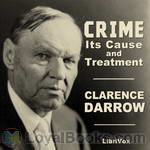 Crime: Its Cause and Treatment
Crime: Its Cause and Treatment
Clarence Darrow was an American lawyer. He remains notable for his wit and agnosticism, which marked him as one of the most famous American lawyers and civil libertarians.In this book, Darrow expands on his lifelong contention that psychological, physical, and environmental influences—not a conscious choice between right and wrong—control human behavior. To my ears (the reader's), the author has a rather simplistic behaviourist view of human behaviour, but he argues his position with wonderful clarity... | |
By: Cordwainer Smith (1913-1966) | |
|---|---|
 Psychological Warfare
Psychological Warfare
Psychological warfare and propaganda have been used extensively in warfare since the earliest times. This book explores the functions, limitations, types, and history of psychological warfare through 1953. It was written by Paul Myron Anthony Linebarger, a US Army officer, a noted East Asia scholar, and an expert in psychological warfare, also known by the pseudonym Cordwainer Smith as a science fiction author. Linebarger had extensive experience with the practice and implementation of psychological warfare techniques in the field through his work with the Office of War Information, the Operation Planning and Intelligence Board, and the CIA... | |
By: David Walker (1796-1830) | |
|---|---|
 Walker's Appeal
Walker's Appeal
The Appeal grabbed readers’ attention in as dramatic a manner as Walker could have possibly imagined. In her book, Maria W. Stewart and the Roots of Black Political Thought, Kirsten Waters writes about how the pamphlet itself was viewed as dangerous by pro-slavery forces, while Walker actively worked to get his text in the hands of Black readers. He did not direct his writing to White audiences, and in the third edition added a special message to Black readers, saying that: It is expected that... | |
By: Delmer Eugene Croft | |
|---|---|
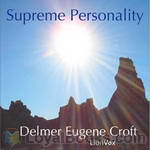 Supreme Personality
Supreme Personality
Life is self-realization. Every birth is divine. We are born anew every morning. My wish is that you may catch the gleam, be freed from limitations and enter upon your boundless possibilities. To bring you into the throne-room of your being, that you may awaken in self-realization, is why I have prepared this course of lessons. Should you give five minutes a day to them, in a year you will know the joy there is in Life, in Power, and in Service. (from the text) | |
By: Edgar Thurston (1855-1935) | |
|---|---|
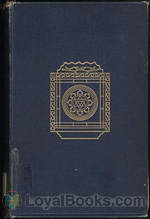 Omens and Superstitions of Southern India
Omens and Superstitions of Southern India
This book deals mainly with some aspects of what may be termed the psychical life of the inhabitants of the Madras Presidency, and the Native States of Travancore and Cochin. | |
By: Edith Wharton (1862-1937) | |
|---|---|
 The Touchstone
The Touchstone
Stephen Glennard's career is falling apart and he desperately needs money so that he may marry his beautiful fiancee. He happens upon an advertisement in a London magazine promising the prospect of financial gain. Glennard was once pursued by Margaret Aubyn, a famous and recently deceased author, and he still has her passionate love letters to him. Glennard removes his name from the letters and sells them, making him a fortune and building a marriage based on the betrayal of another. | |
By: Edward Summers Squier | |
|---|---|
 Etiquette Made Easy
Etiquette Made Easy
"A complete dictionary [sic] containing the right information for any and all occasions." - Summary by KevinS | |
By: Elizabeth Klett (1867-1936) | |
|---|---|
 Six Characters in Search of an Author
Six Characters in Search of an Author
Six Characters in Search of an Author (Sei personaggi in cerca d’autore) is the most famous and celebrated play by the Italian writer Luigi Pirandello. Pirandello, in the preface to the play, says that whenever a reader opens Dante’s Inferno, Francesca will drift down from the dark wind in her circle of Hell and tell the Pilgrim her story; and it will always be for the first time – just as the Mother in Pirandello’s play at one point makes an agonizing cry, always for the first time. Each character sees events and the other characters differently... | |
By: Elliott O'Donnell (1872-1965) | |
|---|---|
 Some Haunted Houses of England and Wales
Some Haunted Houses of England and Wales
Old buildings necessarily have a history. It is not always a happy history and folklore abounds. Sometimes unhappy souls come back to haunt the current residents or their guests. Whether you believe in ghosts or not, these narratives provide a fascinating insight into the history of the buildings and the hysteria they may induce. - Summary by Lynne Thompson | |
By: Elliott O’Donnell (1872—1965) | |
|---|---|
 Animal Ghosts
Animal Ghosts
Summary: This is a collection of ghost stories in which the antagonists are various animals. Divided up into chapters of ghost sightings by each group of animals, you will hear of hauntings by dogs, cats, birds, jungle animals, etc. (Summary by Allyson Hester) | |
By: Elsie Lincoln Benedict | |
|---|---|
 How to Analyze People on Sight Through the Science of Human Analysis: The Five Human Types
How to Analyze People on Sight Through the Science of Human Analysis: The Five Human Types
In this popular American book from the 1920s, accomplished public speaker and self-help charlatan Elsie Lincoln Benedict outlines her pseudo-scientific system of "Human Analysis". She proposes that, within the human race, five sub-types have developed through evolutionary processes, each with its own distinct character traits and corresponding outward appearance. She offers to teach the reader how to recognise these five types of people and understand their innate differences. Her ideas have never been taken seriously by the scientific community, but this book is considered a classic within its genre and remains in print today. Summary by Carl Manchester. | |
By: Emanuel Swedenborg (1688-1772) | |
|---|---|
 Soul or Rational Psychology
Soul or Rational Psychology
Swedenborg, Emanuel, 1688-1772, was born in Stockholm, Sweden and died in London, England. He was a voluminous writer of scientific treatises as well as prophetic works such as Archana Caelestia and The Divine Providence. He said he had encountered supranational agencies and communicated with angels. This is a recording of the 1849 translation of his 1743 book The Soul or Rational Psychology Latin. He took his cue from Aristotle's De Anima. A few quotes It has been shown above that the harmonies... | |
By: Emory Adams Allen (1853-1933) | |
|---|---|
 Golden Gems of Life
Golden Gems of Life
Life is full of ups and downs, joys and trials. In this work, we are advised on how to deal with what fate deals us, the good and bad, the common and uncommon. Home, childhood, success and failure, perseverance, dignity, frugality, envy, charity... all these and more are explored in this 'guide to life'. - Summary by Lynne Thompson | |
By: Eugen Sandow (1867-1925) | |
|---|---|
 Strength and How to Obtain It
Strength and How to Obtain It
In writing this book I have taken it as a commonplace that everyone—man, woman, and child—wants to be strong. Without strength—and by strength I mean health, vitality, and a general sense of physical well-being—life is but a gloomy business. Wealth, talent, ambition, the love and affection of friends, the pleasure derived from doing good to those about one, all these things may afford some consolation for being deprived of life’s chief blessing, but they can never make up for it. “But,”... | |
By: Francis Tiffany (1827-1908) | |
|---|---|
 Life of Dorothea Lynde Dix
Life of Dorothea Lynde Dix
A biography of a woman who advocated for the humane treatment of people with mental illness. As a young woman travelling overseas, Dorothea Dix met with people who were interested in reforming how the mentally ill were treated. Returning to America, she pushed for changes and proper care for these individuals, meeting with strong resistance. Her work ultimately resulted in social reform and the creation of asylums. Dorothea Dix was a tireless crusader and instrumental in important social reforms in the United States and the world. - Summary by Phyllis Vincelli | |
By: Fyodor Dostoyevsky (1821-1881) | |
|---|---|
 The Brothers Karamazov
The Brothers Karamazov
Set in 19th century Russia, The Brothers Karamazov (Russian: Братья Карамазовы) is the last novel written by the illustrious author Fyodor Dostoyevsky who died a few months before the book's publication. The deeply philosophical and passionate novel tells the story of Fyodor Karamazov, an immoral debauch whose sole aim in life is the acquisition of wealth. Twice married, he has three sons whose welfare and upbringing, he cares nothing about. At the beginning of the story, Dimitri Karamazov, the eldest son who is now a twenty-eight year old war veteran, returns to his home town to claim the inheritance left to him by his dead mother... | |
By: Gautama Buddha (563-483 BC) | |
|---|---|
 Der Wahrheitpfad (Dhammapadam)
Der Wahrheitpfad (Dhammapadam)
Das Dhammapada ist eine Anthologie von Aussprüchen des Buddha. Dabei sind die Verse so ausgewählt, dass sie den Kern der Lehre des Buddha wiedergeben. Es ist einer der bekanntesten Texte dieser Lehre und findet seine weiteste Verbreitung im südlichen Buddhismus. Dort begleitet es die Schüler des Buddha vom Anfang bis zum Ende ihres Pfades. Darüber hinaus ist es ein Meisterwerk sowohl der frühen buddhistischen Literatur als auch der indischen Tradition des Karvya (Belle Lettre). | |
By: Genevieve Behrend (1881-1960) | |
|---|---|
 Your Invisible Power
Your Invisible Power
Genevieve Behrend was a teacher of Mental Science, a New Thought discipline created by Thomas Troward (1847- 1916). Your Invisible Power, published in 1921, is her first and most famous book. It is a guide to the use of visualization and other mental processes in life enhancement and the achievement of personal goals. | |
By: George Barton Cutten (1874-1962) | |
|---|---|
 Psychology of Alcoholism
Psychology of Alcoholism
After presenting an overview of alcoholism and its affect on society, Dr. Cutten dives into the effects of chronic alcoholism on physiology, the nervous system, memory, intellect, will, emotions, senses that affect the individual's morals and sanity. Lastly he presents two cures known at that time, Religious conversion and hypnotism. | |
By: George Berkeley (1685-1753) | |
|---|---|
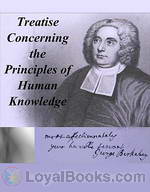 A Treatise Concerning the Principles of Human Knowledge
A Treatise Concerning the Principles of Human Knowledge
A Treatise Concerning the Principles of Human Knowledge, Part 1 (Commonly called “Treatise” when referring to Berkeley’s works) is a 1710 work by the Irish Empiricist philosopher George Berkeley. It largely seeks to refute the claims made by his contemporary John Locke about the nature of human perception. Both Locke and Berkeley agreed that there was an outside world, and it was this world which caused the ideas one has within one’s mind. Berkeley sought to prove that the outside world was also composed solely of ideas, suggesting that “Ideas can only resemble Ideas”... | |
By: George Eggleston and Dolores Marbourg | |
|---|---|
 Juggernaut: A Veiled Record
Juggernaut: A Veiled Record
Edgar Braine was consistently successful at all he set out to accomplish. He went through life with goals and worked diligently and with ethical purity in reaching those goals, from becoming editor of the local newspaper on up to his political aspirations. That was how his mother, in her waning years, had advised him to reach his goals, and Edgar was determined to honor her advice. There was one caveat in his mothers advice however, and it is for Edgar to determine exactly what she meant by it. Is success measured by the interactions between business, politics, and marriage? | |
By: Gustave Le Bon (1841-1931) | |
|---|---|
 Crowd
Crowd
"Civilisations as yet have only been created and directed by a small intellectual aristocracy, never by crowds. Crowds are only powerful for destruction. Their rule is always tantamount to a barbarian phase. A civilisation involves fixed rules, discipline, a passing from the instinctive to the rational state, forethought for the future, an elevated degree of culture — all of them conditions that crowds, left to themselves, have invariably shown themselves incapable of realising. In consequence of the purely destructive nature of their power crowds act like those microbes which hasten the dissolution of enfeebled or dead bodies... | |
 Psychology of Peoples: Its Influence on Their Evolution
Psychology of Peoples: Its Influence on Their Evolution
"It is barely a century and a half ago that certain philosophers, who, it should be remarked, were very ignorant of the primitive history of man, of the variations of his mental constitution and of the laws of heredity, propounded the idea of the equality of individuals and races... It is in the name of this idea that socialism, which seems destined to enslave before long the majority of Western peoples, pretends to ensure their welfare... The object of this work is to describe the psychological characteristics which constitute the soul of races, and to show how the history of a people and its civilisation are determined by these characteristics... | |
By: H. G. Wells (1866-1946) | |
|---|---|
 Anticipations
Anticipations
Wells considered this book one of his most important, a natural follow-up to such works as his Man of the Year Million and The Time Machine. His goal was to get people to think and act in new ways. The book starts with a look at how humans get along socially and how they carry out their business ventures. It then discusses how these elements influence others, such as politics, the world of work, and education. H. G. tried to make clear how the current social order was disintegrating without preparing another to take its place. He then traced the roots of democracy, which in its present state he saw as unworkable. Instead, he proposed a new republic. He also critiqued modern warfare. | |
By: Hans Gross (1847-1915) | |
|---|---|
 Criminal Investigation: a Practical Handbook for Magistrates, Police Officers and Lawyers, Volume 3
Criminal Investigation: a Practical Handbook for Magistrates, Police Officers and Lawyers, Volume 3
Reputedly inspired by the Sherlock Holmes stories, Austrian criminal jurist and examining magistrate Hans Gross wrote the first handbook on criminal investigation. This treatise covers everything from the qualities of a good investigating officer and how to utilize various experts, to tactics employed by criminals, how to analyze footprints and blood stains, and ways that criminals perpetrate crimes. Some of the remarks relate directly to India, such as disguising one's caste.Volume 3 consists of Part 4 of the 4 parts in the work. - Summary by TriciaG | |
 Criminal Investigation: a Practical Handbook for Magistrates, Police Officers and Lawyers, Volume 1
Criminal Investigation: a Practical Handbook for Magistrates, Police Officers and Lawyers, Volume 1
Reputedly inspired by the Sherlock Holmes stories, Austrian criminal jurist and examining magistrate Hans Gross wrote the first handbook on criminal investigation. This treatise covers everything from the qualities of a good investigating officer and how to utilize various experts, to tactics employed by criminals, how to analyze footprints and blood stains, and ways that criminals perpetrate crimes. Some of the remarks relate directly to India, such as disguising one's caste.Volume 1 (of 3) consists of Part 1 of the 4 parts in the work. | |
 Criminal Investigation: a Practical Handbook for Magistrates, Police Officers and Lawyers, Volume 2
Criminal Investigation: a Practical Handbook for Magistrates, Police Officers and Lawyers, Volume 2
Reputedly inspired by the Sherlock Holmes stories, Austrian criminal jurist and examining magistrate Hans Gross wrote the first handbook on criminal investigation. This treatise covers everything from the qualities of a good investigating officer and how to utilize various experts, to tactics employed by criminals, how to analyze footprints and blood stains, and ways that criminals perpetrate crimes. Some of the remarks relate directly to India, such as disguising one's caste.Volume 2 consists of Parts 2 and 3 of the 4 parts in the work. - Summary by TriciaG | |
By: Havelock Ellis (1859-1939) | |
|---|---|
 Studies in the Psychology of Sex, Volume One
Studies in the Psychology of Sex, Volume One
The first of six volumes, this volume covers in extensive detail the topics of "The Evolution of Modesty", "The Phenomena of Sexual Periodicity", and "Auto-Eroticism". Written as an anthropological and psychological study from the point of view of Havelock, the famous British sexologist of the late 19th century, who was also a physician and social reformer. | |
 Study of British Genius
Study of British Genius
The psychological and anthropological character of genius in the British Isles was investigated by Ellis. Citing and collating an extensive source of information from the Dictionary of National Biography, many pieces of informational are discussed, including the ancestral heritage, geographical distribution, professions, and health and morbidity of the most the most preeminent men and women of the time. This work also promotes his theory that large cities are not only counterproductive to the development of high achievers, but detrimental to national health. | |
By: Helen Ekin Starrett (1840-1920) | |
|---|---|
 Letters to a Daughter and A Little Sermon to School Girls
Letters to a Daughter and A Little Sermon to School Girls
Helen Ekin Starrett, journalist, mother of two daughters, grandmother of seven granddaughters and teacher to many young girls at the Starrett School for Girls offers lessons in life and religion to girls about to "pass out from the guardianship of home into life with its duties and trials". | |
By: Henry Drummond | |
|---|---|
 The Greatest Thing in the World and Other Addresses
The Greatest Thing in the World and Other Addresses
The spiritual classic The Greatest Thing In the World is a trenchant and tender analysis of Christian love as set forth in the thirteenth chapter of I Corinthians. The other addresses speak to other aspects of Christian life and thought. | |